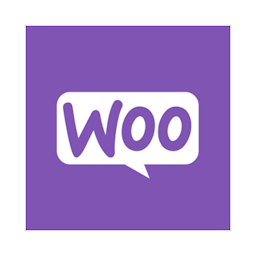Connect WooCommerce and Facebook Conversions API
Why do WooCommerce and Meta/Facebook Need to Be Connected?
WooCommerce is a popular e-commerce plugin for WordPress. Facebook is one of the most widely used platforms for advertising, which businesses use commonly to grow their audience and further develop their brand, either through Facebook pages or ads. Both platforms keep a rich set of data, but without integration, such as from Able CDP, connecting WooCommerce to Facebook Conversions API in a way that provides precise attributed data on e-commerce conversions can be tricky.
WooCommerce plugins' built-in connectivity often doesn't solve all needs related to attributing WooCommerce sales conversions to visitor sources in Facebook.
- Using Facebook Pixel-based tracking alone results in many purchases missing from the reports and low event match quality in Events Manager. Using only front-end identifiers available to a Facebook Pixel (Meta Pixel) or Facebook Conversions API Gateway limits Facebook's ability to identify sources of conversions. This is the primary reason why many advertisers fail to see improvement from using Facebook Conversions API Gateway: the data necessary for event matching are often not available in browser.
- Using WooCommerce with plugins or integration services that send data to Facebook Conversions API still results in 30-50% of conversions missing or poor event match quality due to simplified Facebook Conversions API implementation, making Facebook to ignore the event sent to Conversions API altogether when a corresponding Pixel event is available, even if Conversions API event has enough customer data to let Facebook to attribute the conversion if all customer details are sent together.
- Missing sales from Facebook makes both manual and automatic audience optimization harder, as well as results in lack of reliable ad ROI data because of unreported sales, which occurs when there is no help from an integration platform such as Able CDP that ensures all WooCommerce sales data are properly attributed to Facebook ad clicks.
- The existing Facebook for WooCommerce plugin is widely criticized as being complex and time-consuming to implement with little benefit added when the integration is complete. Despite what it claims, many users experience issues with syncing data between the platforms.
Able CDP can help with this. Able already knows how to send data across platforms using existing integrations, through connecting to Facebook Conversions API and receiving webhooks from WooCommerce.
E-commerce sales can be tracked throughout the entire funnel: from the first interaction to the revenue. Attributing sales to leads and leads to marketing sources allows for accurate tracking of end-to-end marketing campaigns and understanding of ROI. The server-side WooCommerce and Facebook integration in combination with first-party attribution makes it possible to get a complete overview of the customer journey.
A Complete Solution for Integrating WooCommerce and Meta/Facebook
Able Customer Data Platform is the ultimate WooCommerce and Facebook integration.
It combines browser tracking with server API integrations, linking website activity with purchases on the back-end to build a complete journey of each customer across Stripe and Facebook.
It introduces first-party tracking and first-touch attribution based on the concept of a Customer. Able associates activity that happens on website prior to the purchase personal information, associating Facebook's identifiers with the customer, allowing Facebook to uniquely identify a customer across events and devices and provide complete conversion data to Facebook Conversions API, resulting in almost all WooCommerce sales from paid traffic correctly matched and reported.
This allows you to attribute most sales to the correct marketing source, ad click and landing page and obtain data to inform strategy.
All of this without coding and complex manual set-up of the connection between WooCommerce and Facebook. Able already knows how to connect marketing data between WooCommerce and Facebook.
All of this happens in Able CDP automatically, provided Able is used to track Facebook ad click conversions to leads.
Use of Facebook Conversions API can improve your CPA by 13% across multiple verticals when setting up the Conversions API with the Meta pixel. It can also increase your lead to sale conversion rate by 20% by showing you which ads are optimized for your customer base. Connecting Able CDP to your Facebook Conversions API will ensure this helpful data is efficiently transferred to other analytics platforms you may be using, allowing for even better analysis of your marketing campaigns and customer journey.
How Able CDP Integrates WooCommerce and Meta/Facebook
Able makes it easy to know which leads and Facebook visitors convert to paying WooCommerce customers. It allows you to attribute them to the original visitor who started the purchase process on Facebook tracked by Able, allowing you to send purchase conversions to Google Analytics and ad platforms such as Google Ads.
Able CDP combines browser and back-end tracking to:
- store Facebook Click id, including the original ad click id (fbclid), when available, as well as browser id (fbp).
- attribute successful payments to the Facebook click ids and send WooCommerce conversions to Facebook Conversions API with additional customer match parameters.
- send Advanced Match Parameters. Customer email, phone, name and address help Facebook to attribute sales when a click id parameter isn't available or is inconclusive
- add UTM parameters, referrer URL and landing page details to new leads;
- attribute successful WooCommerce order after to the Facebook Conversions API after a payment is completed, as well as send e-commerce transaction attributed to the original website user to Google Analytics.
5 Steps to Connect WooCommerce with Facebook Conversions API by Using Able CDP
Step 1. Sign up for a free Able trial account
Complete the sign up form to create a trial account.
Step 2. Install Able tracking code on the website
After signing up for a free account, Able CDP will prompt you to add code to your website.
This tracking code will record ad click ids and details of the original landing page visit, as well as lead form submissions, allowing to attribute customers to website visitors. Able CDP uses its tracking to capture UTM parameters, referrer URL and landing page URL, store them in its own attribution database together with the personal identifiers such as email or phone, entered by customer in lead and order forms, allowing it to associate all future customer activity with the original website visitor source.

Add lead form URLs to the HTML Forms Tracking section to let Able automatically recognize the sign-up and lead forms you're using. Any standard lead form widgets that we could detect during the account setup will appear in the Dynamic Lead Forms Tracking section.
Press "Generate" in the Get Code section to generate a unique tracking code to add to your site.
Able CDP page view tracking doesn't install its own cookies and relies on third-party identifiers such as Google Analytics Client Id to connect customer activity between website pages. Please enable cross-domain measurement in Google Analytics if your landing and lead/order pages are hosted on different domains.
Step 3. In the Funnel tab, click add service integration to select which platforms you want to integrate with

Step 4. Connect Able to WooCommerce

Track Customer Details
- To track customer details and associate WooCommerce customers with the visitor details, install tracking code generated using the "Get Code" section. This code will track WooCommerce form submissions.
Create WooCommerce API Key
- Open WooCommerce Settings, Advanced - REST API.
- Create a new API key with Read permissions.
Save Consumer key and secret as a new Able credential

Add Inbound Integration
Configure WooCommerce to Notify Able of New Purchases
- Open Advanced - Webhooks in WooCommerce settings. Add a new webhook with following parameters:
- Status: Active
- Topic: Action
- Action Event: woocommerce_order_status_changed
- Delivery URL: https://pfsh9epbe1.execute-api.eu-west-2.amazonaws.com/Prod/woocommerce-webhook/237b517f-3b75-4953-906b-77184b34b83d, where 237b517f-3b75-4953-906b-77184b34b83d - unique identifier of your funnel.
Able CDP will now receive webhooks from WooCommerce and retrieve purchase details from its API, automatically attributing Purchases to Visitors by customer emails and phones and sending Purchase conversions with detailed Invoice Lines where supported.
WooCommerce purchases are attributed by matching purchase to the web lead by billing email or phone. Transition of order status into ‘processing’ is treated as a successful order event.
Step 5. Connect Able to Facebook
1. Set up Facebook Events Manager
- Open Facebook Events Manager.
- If you have existing Pixel of an Offline Events Set that you'd like to use, open it.
- Go to the Settings tab and click Generate access token.

For more granular permissions setup, you could also create System Users and Tokens in Facebook Business Settings manually.
2. Add Access Token to Able
Paste the access token you've created in the previous step and save it. Leave refresh token empty.
3. Enable Outbound Integration
Select the credential you've just created and Purchase event type.
If the token you're using has 'Manage Ad account' permission, Able will display list of Ad Account, which allows to select ad account and pixel you'd like to use from the list.
Otherwise, copy a Pixel or Offline Event Set Id from Facebook Events Manager and paste into the Adspixel or Offline Event Set field respectively:

Enabled for the following event types:

Learn More
Read more about Able CDP tracking and attribution engine and how it utilizes a customer journey database to correctly attribute all purchases to the original visitors.
E-Commerce Conversion Funnel Tracking
Able CDP helps to track modern multiple step e-commerce funnels where customers interact with multiple services prior to eventually making a purchase, resolving issues with incorrect Google Analytics attribution and conversions missing from Google Ads and Facebook Ads reports.
Sending conversions to Google Ads is an extremely common integration scenario. Its used to add conversion value to Google Ads’ reports, allowing to report on ROI, as well as to use performance-based targeting and optimization capabilities.
Send Purchases to Facebook Conversions API
Attributing conversions to Facebook Ads is a common task, however doing it with sufficient precision is hard. Sales might happen in CRM, or, when they happen online, customer might not come back to the website, so tracking with Facebook Pixel JS produces substandard results. Able solves this problem with its Facebook Conversions API integration.



